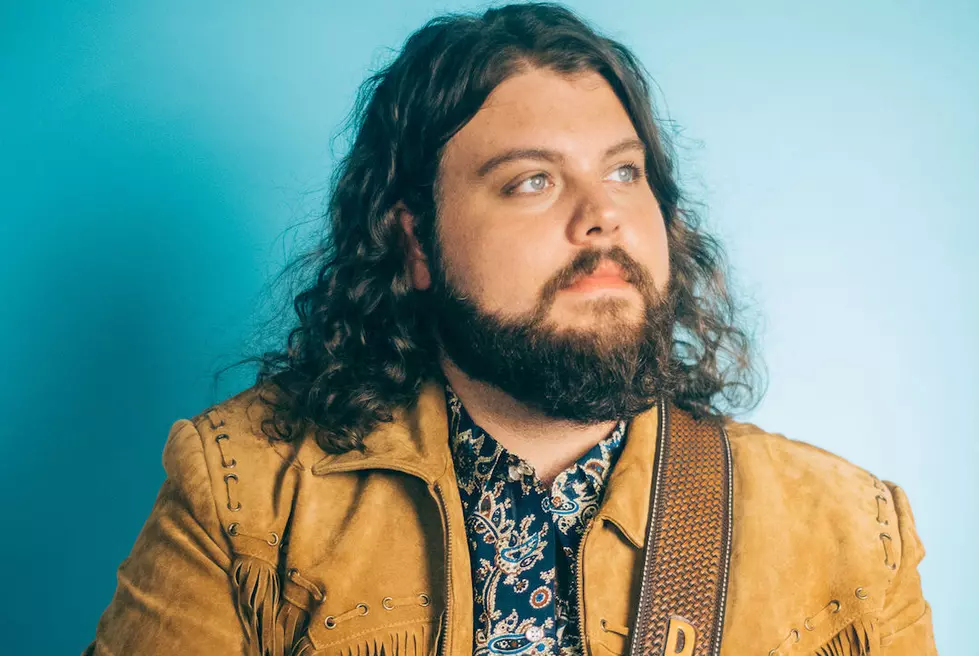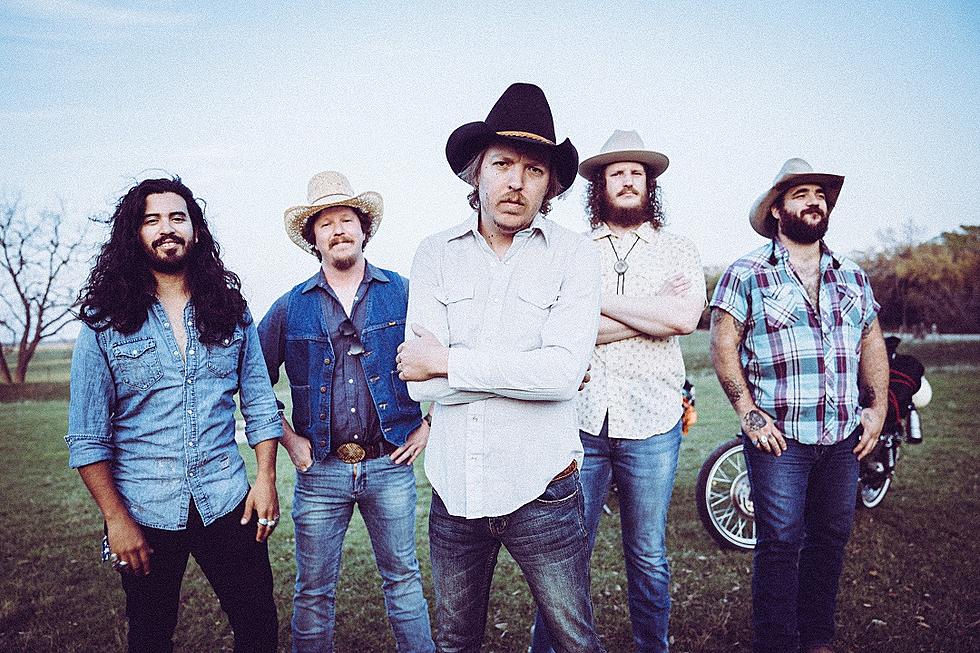
Dillon Carmichael: One of the Simplest Musical Lessons ‘Can’t Be Taught’
When Dillon Carmichael decided to record his debut album, Hell on an Angel, he had no shortage of people to ask for advice. The singer-songwriter grew up steeped in classic country thanks to his star uncles Eddie Montgomery and John Michael Montgomery, as well as his mother, singer-songwriter Becky Montgomery, who co-wrote one of the tracks on the project.
Carmichael is quick to credit his musical family for their help in boosting his success; however, he explained to The Boot in a recent interview, one of the simplest lessons he learned from the album-making process was also one that nobody else could have taught him.
"Well, there's certain things I feel like you can't teach someone without them learning the hard way," Carmichael carefully explains. "To have an example, I went through what I call my epiphany moment, where I realized I needed to listen to me, not listen to everybody else."
It sounds simple, the singer goes on to say, but learning to trust his instincts was easier said than done. "I mean, you could've told 18-year-old me, 'You need to listen to you and not anyone else,' but I still would've let outside people impact my decision-making," he continues. "It just took experience and learning the hard way to get to that point."
Carmichael is a gentle, soft-spoken guy, who often pauses between his points to make sure the words are coming out correctly. He brings that same care and attention to his music, too -- in no small part because of the legacy that he has inherited. A traditionalist, Carmichael says he's proud to be a part of the next chapter of his country music family.
"My cousin [Walker Montgomery] is out there doing it, too. He just released his album," he says. "We're a new generation at this point, and we got the family stuff, but no one knows our names yet. Yet."
Carmichael's country music family goes beyond his blood relations, too. Ace Nashville producer Dave Cobb worked with the young artist on his debut album, which also features writing credits from country mainstays such as Jon Pardi and Leroy Powell.
Perhaps one of the most important country music characters that factored into Hell on an Angel, however, was not a person at all, but rather the historic RCA Studio A, where Carmichael recorded the project. Loretta Lynn, Dolly Parton, Alan Jackson, Waylon Jennings and dozens of other country greats have recorded within its walls, and for someone who values country tradition as much as Carmichael does, entering the place is akin to stepping into church.
"I played some of my favorite Waylon songs back in my mind, and just kind of sat and absorbed it," he recalls of being in the studio.
"They were joking about the ghost of Waylon slamming the doors -- like, 'Whats that noise?' 'Oh, that's just Waylon,'" Carmichael adds. "But you really feel that. In the whole building, actually, not just Studio A. We wrote "Dixie Again," which is the last song on the record, in one of the writing rooms upstairs in that building, and it was the same thing there."
For his second album, Carmichael is hoping to record in Studio A again and recapture that energy. And while it might seem early to be thinking about a sophomore record, he says another project isn't too far off.
"I want to record an album every year. I'm one of those," Carmichael admits. "That's what I'm here to do, is play music and record music, so I wanna keep doing that."
His next album, Carmichael explains, will not veer too far from the musical style that marks Hell on an Angel. "I don't see it going much away from Southern rock and outlaw and traditional country," he continues. "That's my soul. It's where I come from. I don't know anything else, and I can't sell anything else."
"I'm not a faker. Can't do it," he reiterates, cracking a small smile.
Dillon Carmichael Shares the Story Behind His Song "Natural Disaster"
More From 92.5 The Ranch

![Dalton Domino’s New Song ‘Wasn’t Her Own’ Was a Songwriting Challenge [Exclusive Premiere]](http://townsquare.media/site/623/files/2021/09/attachment-dalton-domino.jpg?w=980&q=75)

![Allie Dunn’s Debut Single, ‘Tom Petty,’ Pinpoints the Moment a Relationship Falls Apart [Exclusive Premiere]](http://townsquare.media/site/623/files/2021/09/attachment-allie-dunn.jpg?w=980&q=75)

![Jenny Tolman Is Searching for Her Perfect Winter Wedding Gown on ‘Say Yes to the Dress’ [Exclusive Video]](http://townsquare.media/site/623/files/2021/08/attachment-jenny-tolman-syttd.jpg?w=980&q=75)




